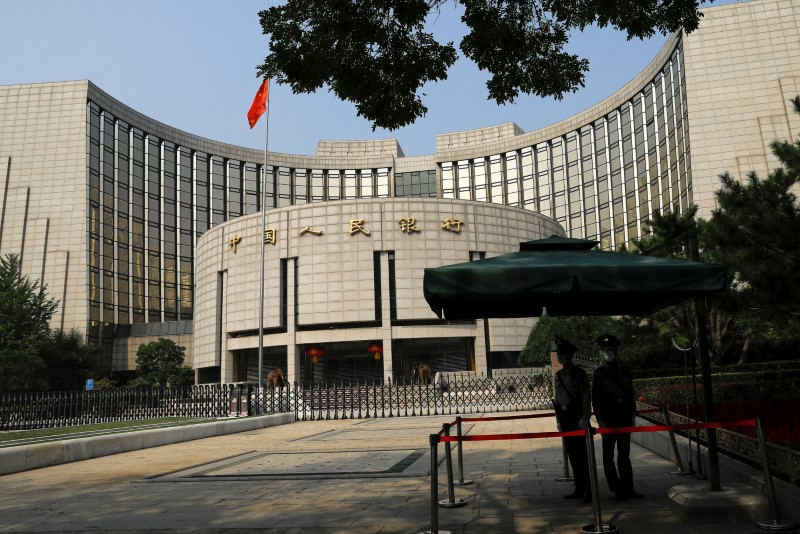PBOC injects $81 billion via reverse repos, delays MLF
2024.08.14 22:57
SHANGHAI (Reuters) -China’s central bank injected cash through a short-term bond instrument on Thursday and said that it would conduct a medium-term loan rollover later this month.
The central bank delivered a series of interest rate reductions last month and the sequence of the cuts showed that the People’s Bank of China’s (PBOC) monetary framework has changed, market watchers said, shifting the short-term rate to become the main signal guiding the market.
On Thursday, the PBOC said it lent 577.7 billion yuan ($80.9 billion) through seven-day reverse bond repurchase agreements at 1.7% in an open market operation, unchanged from previously.
It added that the cash injection was meant to counteract factors including maturing medium-term lending facility (MLF) loans, tax payments and government bond issuance, in order to “keep banking system liquidity reasonably ample,” according to an online statement.
While a batch of 401 billion yuan worth of MLF loans is set to expire on Thursday, the PBOC said it would conduct the rollover on Aug 26.
“This would be consistent with the policy direction to gradually fade MLF as a guidance to market rates, so is the change of the MLF date to be after loan prime rate (LPR) decision,” said Frances Cheung, head of FX & rates strategy at OCBC Bank.
“The chance remains for replacement of some or all of MLF liquidity with that released from an reserve requirement ratio (RRR) cut, later this month or in September.”
China is due to release the monthly fixing of benchmark lending LPR next Tuesday.
Recent economic data, including bank lending figures, showed that domestic demand was weak and more stimulus measures were needed to boost growth in the world’s second-largest economy.

PBOC Governor Pan Gongsheng said in June that the central bank would revamp its monetary policy transmission channel, adding that the seven-day reverse repo basically serves the function of the main policy rate.
($1 = 7.1382 )








